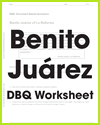| Hard Times (1977) Educator Guide |
|---|
| www.studenthandouts.com ↣ World History ↣ Industrial Revolution ↣ Industrial Revolution Books and Films |
 Length: 4 episodes, each circa 50 minutes long
Length: 4 episodes, each circa 50 minutes longAge appropriateness: Hard Times is not officially rated in the United States. This British production, which originally aired on television as a miniseries, is safe for all ages. It is most appropriate for students in grades seven and up who are studying the Victorian era and the Industrial Revolution. Creators and stars: Alan Dobie, Andy Stephens, Arthur Hopcraft, Barbara Ewing, Brenda Elder, Charles Dickens, Edward Fox, Esther Dean, Harry Markham, Jacqueline Tong, Michael Deeks, Michelle Dibnah, Patrick Allen, Paul Ridley, Richard Wren, Rosalie Crutchley, Sean Flanagan, Timothy West, Tony Heath, Ursula Howells Accuracy: Hard Times sticks pretty closely to the Charles Dickens novel on which it is based. The production is common for a British period drama of the 1970s—scenes shot like live plays, and actors who haven't had their teeth bleached and a ton of makeup applied (as started in the 1980s). The result is a mixture of characters and sets that look like they truly belong in Victorian England of the 1840s and 1850s. Review: Hard Times, based on the novel of the same name by Charles Dickens, is a critique of the poor treatment of the working class in Victorian England, as well as of the application of Utilitarianism ("facts" vs. "fancy") in education and everyday life. Utilitarianism greatly influenced the Victorian mindset, and you won't find it illustrated better than in Hard Times. Poor working and living conditions are portrayed in the lives of characters such as Rachel and Old Stephen. Stephen's life is a series of unfortunate events. Despite his high moral character, Stephen's low social status causes leads him to be easily framed for a crime. The application of Utilitarianism is illustrated through the instruction provided by Thomas Gradgrind, both at the school he runs and in the homeschooling he provides for his children. Example 1: Cecilia Jupe, a new student at Gradgrind's school who previously worked with horses in a circus, is asked to recite horse facts. Despite her intimate knowledge of horses, Cecilia is stumped. Another student, who has no practical experience with horses, answers Gradgrind "correctly" by listing facts about the genus the horse belongs to, etc. Example 2: Gradgrind informs his daughter Louisa that Bounderby, 30 years older than Louisa, has proposed marriage to her. Instead of consulting Louisa's feelings, Gradgrind quotes statistics to her, such as the fact that most marriages involve an age difference, that in the majority of these instances the husband is older than the wife, etc. Review and discussion questions: (1) Briefly describe each of the following characters: (a) Bitzer, (b) Cecilia "Sissy" Jupe, (c) James Harthouse, (d) Josiah Bounderby, (e) Louisa "Lou" Gradgrind, (f) Mr. Sleary, (g) Mrs. Gradgrind, (h) Mrs. Sparsit, (i) Rachel, (j) Stephen Blackpool, (k) Thomas Gradgrind, (l) Thomas "Tom" Gradgrind, Jr. (2) Thomas Gradgrind educates his children in a type of Utilitarianism--the idea that facts and rational thinking are the only things that matter, while fanciful, emotional, imaginative thinking must be discouraged. Do you believe that this is a wise philosophy for living? Why or why not? Episode 1: (1) What role do facts play at the school? (2) How does Cecilia (Sissy) come to live with the Gradgrinds? (3) Stephen Blackpool asks Mr. Bounderby for advice about what? Episode 2: (1) Louisa Gradgrind marries whom? (2) What is James Harthouse's business in Coketown? (3) Why is Stephen Blackpool opposed to joining a union? (4) What are living conditions like for the working class people of Coketown? Episode 3: (1) How has Tom Gradgrind gotten himself into debt? (2) What transpires between Louisa and Harthouse? Episode 4: (1) Who visits Harthouse in his lodgings? (2) Why does Rachel come to visit Louisa? (3) Who has joined the circus, and why? Vocabulary terms and names: abscond, blackface, circus, compassion, dissipated, facts, factory, fancy, frivolity, industriousness, inspector, muddle, practical, rationalism, self-interest, self-made man, sentiment, statistics, teetotaler, Utilitarianism Miscellaneous: Thomas "Tom" Gradgrind appears in blackface in the last episode of this four-part miniseries. Many viewers will find this offensive. Before viewing this episode, we advise teachers to explain the popularity of blackface and minstrel shows in the 1800s. Rather than intending to be offensive, Tom's appearance in blackface is both a realistic portrayal of entertainment during this time period, as well as a tool for Tom to hide his identity. |
 |  |  |  |
| www.studenthandouts.com ↣ World History ↣ Industrial Revolution ↣ Industrial Revolution Books and Films |














































